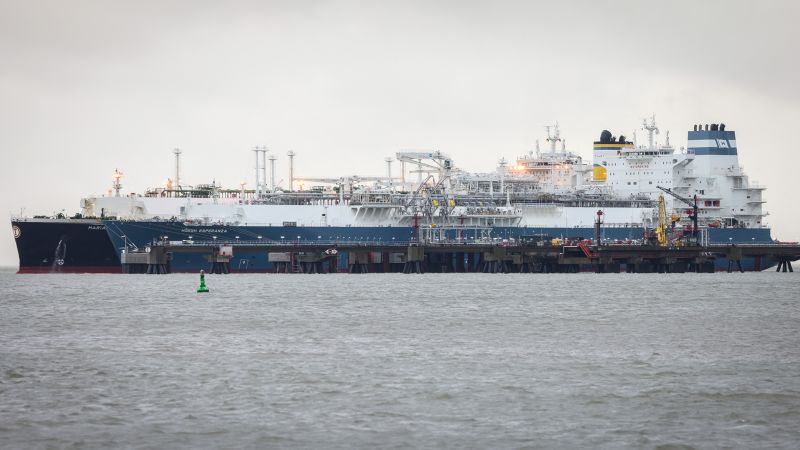Entertainment
Oasis: Plan to ban dynamic ticket pricing Republic of Ireland
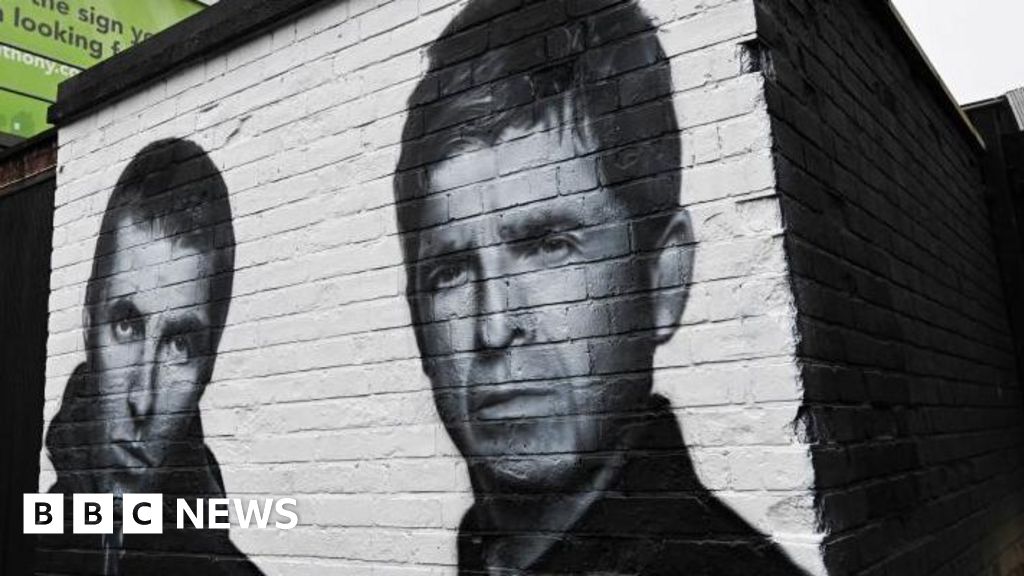
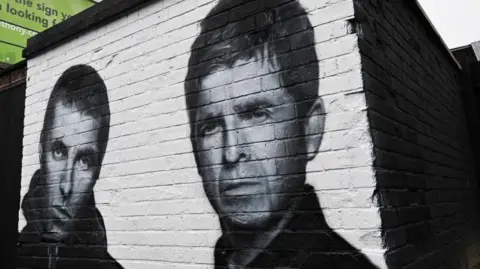 Getty Images
Getty ImagesA number of Fianna Fáil senators and TDs (Irish MPs) are seeking to introduce legislation in the Republic of Ireland that would ban a process known as ‘dynamic pricing’ following price increases for Oasis gigs in Dublin.
There has been widespread criticism of dynamic pricing over the past week.
Dynamic pricing meant that on Ticketmaster, where tickets to the reunion tour were originally sold, prices rose in line with demand.
The cost of some standing tickets at Croke Park in Dublin rose from €176 (£148) on pre-sale to more than €400 (£337).
Ticketmaster has defended the way it sells tickets.
Last week, Oasis announced two concerts at Croke Park on 16 and 17 August, along with a further 15 other nights at venues in the UK.
Two more gigs have since been announced for Wembley in London.
Move to ban practice
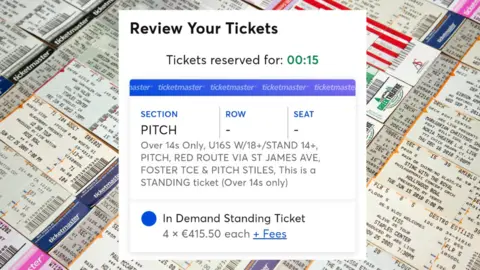 Getty / Darragh Moriarty
Getty / Darragh MoriartyIn the Republic of Ireland, the Sale of Tickets (Cultural, Entertainment, Recreational and Sporting Events) Act came into effect in 2021 and banned the reselling of tickets above face value.
On Thursday, Fianna Fáil Senator Timmy Dooley, Niamh Smyth TD (MP) and Jim O’Callaghan TD will introduce an amendment to that bill.
Mr O’Callaghan said: “The 2021 Act protected fans from the experience of missing out on tickets and seeing those same tickets for sale on a secondary site for far more than they can afford or would be happy to pay.
“It now must be extended so we can protect fans from the experience of seeing ‘in demand’ tickets jumping significantly above the asking price that was initially advertised.”
The UK government has already said there will be a review looking at the transparency and use of dynamic pricing, including the technology around queuing systems which incentivise it.
Schellion Horn, competition economist at accounting firm Grant Thornton, told BBC Radio 4’s Today programme that dynamic pricing was about setting the price around supply and demand.
That means as demand for tickets goes up, then the price rises to match that.
‘Must be nipped in the bud’
 Getty Images
Getty ImagesSenator Timmy Dooley said: “This is about protecting consumers from being ripped off by technological practices.
“People attending any event, not just concerts, should be confident that when they are waiting in an online queue to purchase a ticket they will pay the price that was initially advertised.
“Over the weekend, this was not the case for fans of Oasis. After waiting in an online queue fans were met by ‘in demand’ tickets that were for sale at over €400 each.”
Mr Dooley said the practice of dynamic pricing “must be nipped in the bud before it becomes common practice”.
He added that fans “deserve fairness and transparency”.
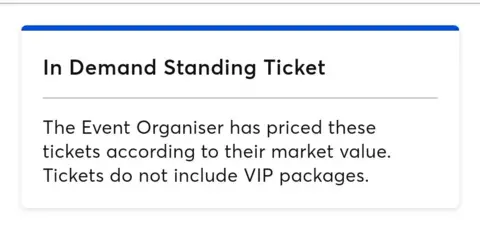 Darragh Moriarty
Darragh MoriartyWhat is dynamic pricing?
Dynamic pricing is when a charge varies according to market demand, rather than having a fixed cost.
Ticketmaster has said it does not set prices and that it is down to the “event organiser” who “has priced these tickets according to their market value”.
Tánaiste (deputy Irish prime minister) Micheál Martin has said there is a role for the Competition and Consumer Protection Commission (CCPC) to investigate the pricing of the Oasis gig tickets.
In a statement, the CCPC said that under consumer law in Ireland, people should be clearly informed of the full price of a product, including fees, before they buy.
Oasis hit out at Ticketmaster’s dynamic pricing this week.
In a statement issued to PA Media, the band said: “It needs to be made clear that Oasis leave decisions on ticketing and pricing entirely to their promoters and management.”
They added they had “at no time had any awareness that dynamic pricing was going to be used” in the sale of tickets for the initial dates.
Oasis said tickets for the new Wembley dates would be handed out via a “staggered, invitation-only ballot process”.
Will this proposal become law?
The bill will now be brought to the Seanad for debate before being debated in the Dáil. It will then be voted on.
Only when both Houses have passed a bill can President Michael D Higgins sign it into law.
The bill is being introduced as a Private Members’ Bill (PMB).
Fine Gael, Fianna Fáil and the Green Party are currently in a coalition government.
A spokesperson for the Green Party in the Republic of Ireland has said that as the bill is a PMB, it will have to be discussed at Cabinet before a decision will be made on whether or not to support it.
‘It’s pure greed’
Green Party Councillor for Lisnasharragh Brian Smyth tried to get tickets for one of the Oasis gigs at Croke Park.
The only tickets available when he got through the online queue were platinum tickets or packages. The platinum ticket on offer started at €353.50 (£297.96) and the fan packages started at €420.25 (£354.19) and went as high as more than €500.
Given the high ticket prices, he made the decision not to purchase one.
Allow Twitter content?
“Ticketmaster have got a lot of questions to answer that this practice has been part and parcel in America and it’s now slowly creeping in over here. I think people are now looking at it fairly disgusted and going ‘This isn’t acceptable’,” Mr Smyth told BBC News NI.
Mr Smyth said he “couldn’t justify” paying over £400 for a ticket.








